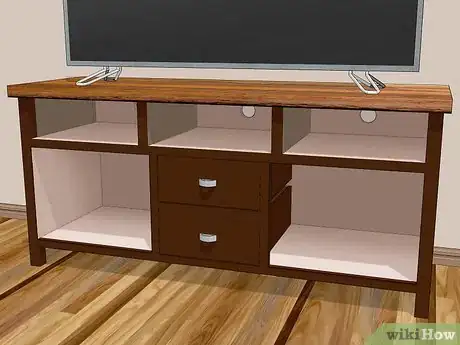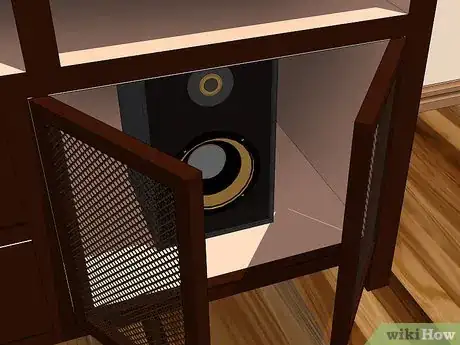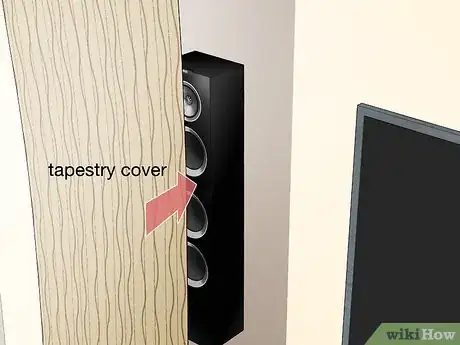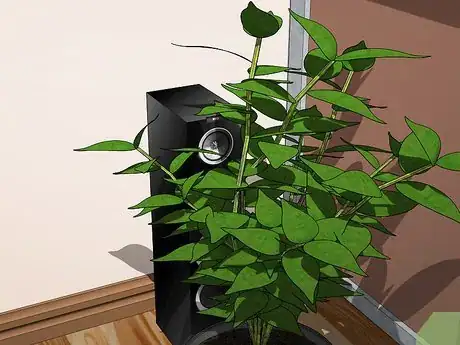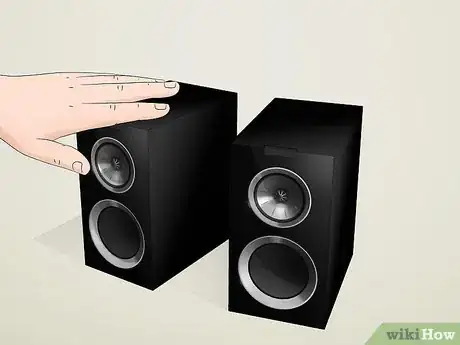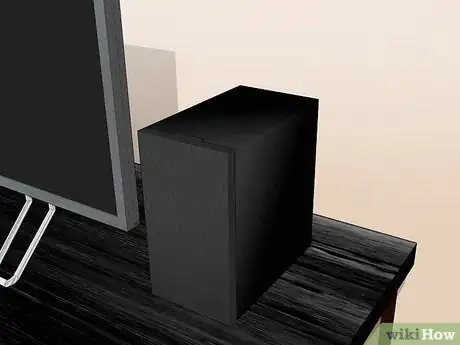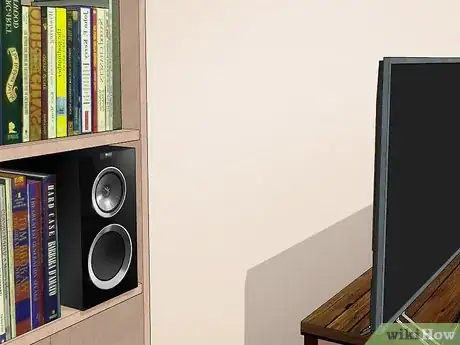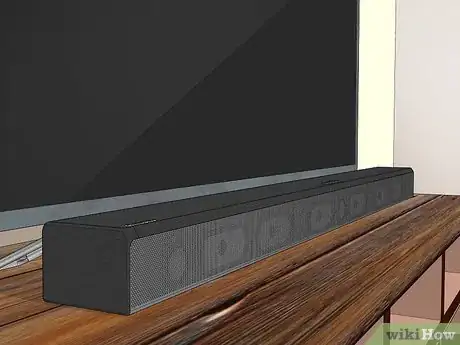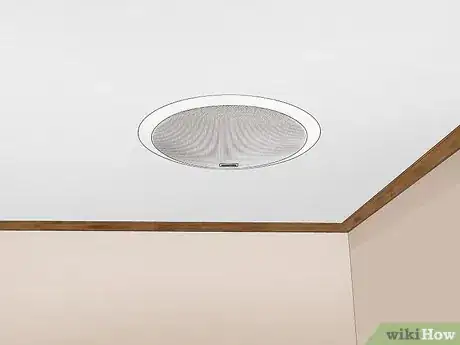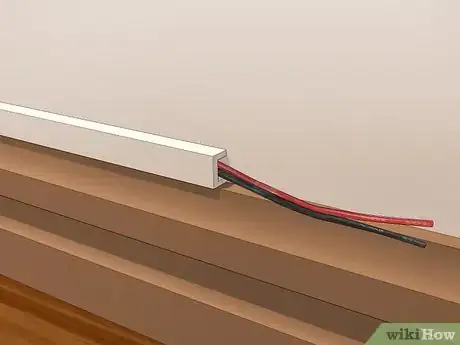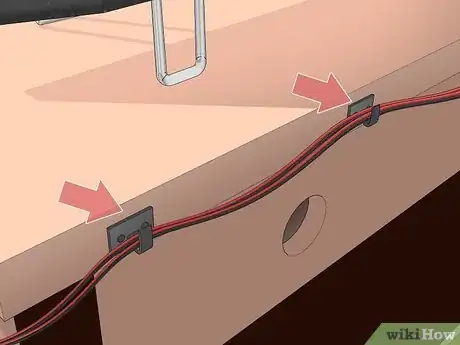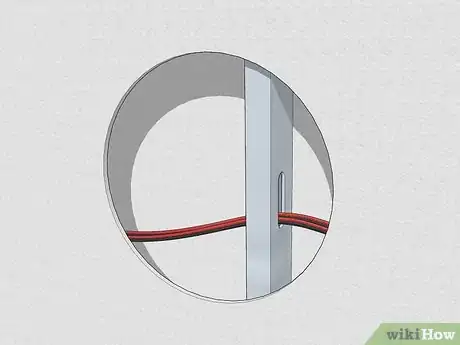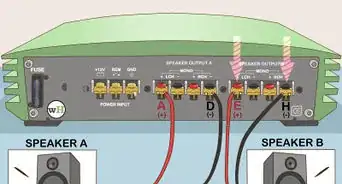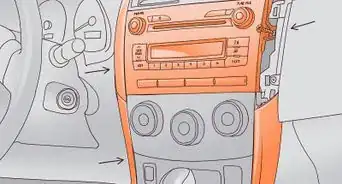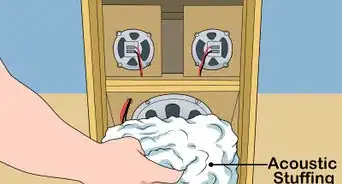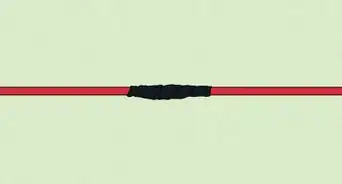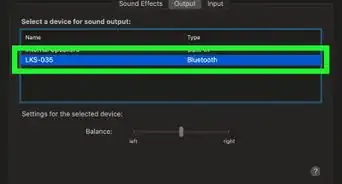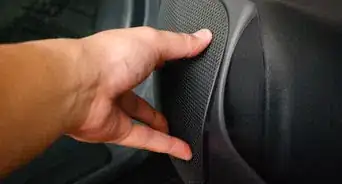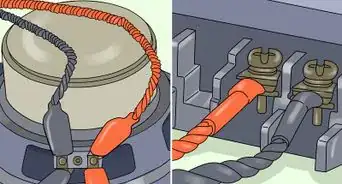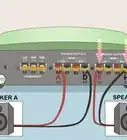This article was co-authored by wikiHow staff writer, Eric McClure. Eric McClure is an editing fellow at wikiHow where he has been editing, researching, and creating content since 2019. A former educator and poet, his work has appeared in Carcinogenic Poetry, Shot Glass Journal, Prairie Margins, and The Rusty Nail. His digital chapbook, The Internet, was also published in TL;DR Magazine. He was the winner of the Paul Carroll award for outstanding achievement in creative writing in 2014, and he was a featured reader at the Poetry Foundation’s Open Door Reading Series in 2015. Eric holds a BA in English from the University of Illinois at Chicago, and an MEd in secondary education from DePaul University.
There are 8 references cited in this article, which can be found at the bottom of the page.
This article has been viewed 28,445 times.
Learn more...
Standalone speakers are great if you value sound quality, but they aren’t particularly beautiful—especially if you value a minimalistic style when it comes to interior design. Luckily, there are plenty of great ways to hide or camouflage your speakers so that they aren’t immediately noticeable. You can get a unique set of speakers that is much easier to hide, like wireless speakers or a soundbar. When it comes to cords, there are plenty of solutions too, although your best bet is a simple cord concealer. Keep in mind, completely covering your speakers will drastically alter the sound quality, so do your best to choose items that are made out of thin materials if you’re going to cover them completely.
Steps
Camouflaging Speakers in Your Room
-
1Get a TV stand designed to shelve speakers to get them off the floor. While most TV stands have a single platform, there are plenty of options on the market for TV stands with speaker shelves. These shelves allow you to set large freestanding speakers directly next to your TV to maintain sound clarity and quality. While the speakers will still be visible, they’ll blend into the shelves seamlessly and won’t stand out nearly as much.[1]
- If your TV is wall mounted, you can get a smaller TV stand and put it underneath your TV.
- You can also tuck the speakers back towards the back of the shelving units to keep them out of sight. This is a great option if you plan on putting books or plants in front of your speakers to hide them. You can also add some vases, lamps, or pillar candles to it for decoration.
-
2Place your speakers inside closeable cabinets to keep them hidden when you want. There are also TV stands with closeable doors that you can use to hide the speakers inside. This is a great option if you want the choice to open or close the cabinets based on whether you’re using the TV or not. If you have a smaller TV stand with no shelving, purchase freestanding cabinets and set them up next to your TV.[2]
Tip: If you want to be able to hear sound clearly and keep your cabinets closed at the same time, purchase cabinets with a grid-like wood panel on the door. These will keep the sound from becoming too muffled or distorted while you’re using your television.
Advertisement -
3Hide your speakers in your wall behind tapestries or acoustic art to hide them entirely. If you have an alcove or recessed shelf in your wall, place your speakers there. Then, push the speakers back past the wall. Hang a flag, textile, or thin tapestry over them. For a higher end option, there are special pieces of acoustic art that you can buy to hide a speaker without obscuring the sound quality all that much.[3]
- This is a great choice if your TV is mounted on the wall since you can place symmetrical pieces of art on the wall on either side of the TV.
- The more breathable the fabric or material, the better the sound quality. Cotton or thin jute will work well, while thicker polyester and felt are likely too thick for this.
- A regular canvas or frame is going to radically muffle your sound. A thin tapestry or piece of acoustic art will certainly modify the quality of the sound, but it won’t be nearly as dramatic.
-
4Place your speakers behind large plants or books to obscure them. Lots of quality speakers are no bigger than a shoebox. If you have smaller speakers, set them on the ground on either side of your television. Then, place large plants in front of them to obscure them. If the speakers are resting on shelves, stack books vertically in front of the speakers with the spines facing out. These are great ways to hide your speakers without the need for expensive items or major adjustments.
- Putting anything in between you and your speakers is going to change the sound. However, the paper pages in a book and leaves on a plant aren’t going to reflect sound very well. That makes them ideal blockers since the quality of your sound will remain largely intact.
- This is a great option if your speakers are on the ground and your TV is wall-mounted.
Choosing Inconspicuous Speakers
-
1Purchase smaller speakers that are easier to hide. Larger speakers are much harder to hide since they naturally take up a bunch of space. Smaller speakers will offer a greater degree of choice when it comes to choosing where you hide your speakers. There are also plenty of smaller speakers on the market that offer incredible sound quality.[4]
Tip: A smaller speaker doesn’t necessarily mean poorer sound quality. Speaker technology has developed radically in the past 20 years and you no longer need large, bulky speakers to get great sound.
-
2Buy speakers that match the color of your furniture to blend in. If you have a black TV stand, purchase speakers that are all black. If you have white furniture, get speaker boxes made of white plastic. This is an easy way to seamlessly hide your speakers near your TV stand without making them stand out too much.
- If your TV stand is made of unpainted wood, there are plenty of speakers on the market with wood cases.
-
3Choose wireless speakers to hide them anywhere in your home. Wireless speakers connect to your television through Wi-Fi or Bluetooth. These are a great choice if you live in a smaller space that won’t need a lot of sound to fill the room. They also give you a ton of freedom in terms of where your hide your speakers. They can go under an end table, couch, or some other furniture item. You can also tuck them behind a TV or on a nearby bookshelf.[5]
- If you buy wireless speakers and really care about sound quality, expect to spend over $100 on them. Cheaper wireless speakers tend to be quite poor in terms of sound quality.
-
4Get a soundbar for a more inconspicuous speaker setup. Soundbars are thin speakers that are more aesthetically pleasing than traditional speakerboxes. They can be wall-mounted or placed at the base of your TV when it sits on the TV stand. While they’re not great options for hiding, they are much less noticeable than standard speakers and blend quite nicely into a well-designed room.[6]
- Soundbars have excellent sound quality. They aren’t as good as standard speakerboxes of the same price, but they’re the next best thing!
- These are perfect if you’re not using a TV stand since the soundbar can be mounted on the wall directly under the TV.
-
5Choose in-wall or ceiling speakers if you want phenomenal sound. In-wall or ceiling speakers refer to high-quality speakers that are mounted directly into your drywall. They’re a common choice for people that want surround sound setups but don’t want large speakers sitting all over the room. Since these speakers require fiddling with wires behind drywall and running them to a TV, you’ll need to hire a contractor to install these speakers for you.[7]
- In-wall and ceiling speakers will cost roughly $250-500 per speaker to install. Most surround sound setups require 4-6 speakers.
- This is the best option for a home theater with a projector screen.
Hiding Your Speaker Wires
-
1Use a cable concealer to run wires along your baseboard or floor. A cable concealer refers to a small plastic tube that covers your cords. They’re perfect for running speaker cords to your TV, since they blend in seamlessly with the baseboard. Purchase cable concealers, run your cords through them, and peel off the adhesive on the back before attaching them to your trim or baseboard.[8]
- If your TV is hanging on your wall, you can also run a cable concealer from the TV to the floor to hold your cords against the wall. These concealers can also be painted to blend them in with your drywall.
- This is the easiest option for hiding speaker wires, since the speakers are near your TV and run along the baseboard naturally as it is.
-
2Choose cable hooks to hang your cords behind the TV stand. Cable hooks are small fasteners that hang on the back of a piece of furniture to pin your cords against the TV stand. These are a particularly good choice if you don’t have a solid TV stand and there are cords hanging underneath it. Purchase cable hooks and place one every 3–4 inches (7.6–10.2 cm) against the back of your TV stand. Run your speaker’s cords through these hooks to keep them from sitting on the ground under your TV stand.[9]
Variation: In a pinch, you can use binder clips instead. Open the jaws of the binder clips and wrap them around the back of your TV stand’s platform. Leave a little space between the back of each clip and the TV stand before running the cords through the opening.
-
3Run your cords through the wall to hide them entirely. If you don’t mind drilling, you can put a small hole in the drywall and run your cords through to the back of the TV. To do this, get an in-wall power kit and attach it to a small opening near your speaker. The downside of this that you won’t be able to move your speakers in the future, so only use this solution if you know you won’t be changing their location.[10]
References
- ↑ https://www.digitaltrends.com/home-theater/10-common-home-theater-mistakes/
- ↑ https://www.digitaltrends.com/home-theater/10-common-home-theater-mistakes/
- ↑ https://youtu.be/c8mAA7VkkvU?t=19
- ↑ https://youtu.be/hjxWKhwCnOM?t=97
- ↑ https://youtu.be/-uFkl5ADbbk?t=234
- ↑ https://youtu.be/U7cA-_XJKPQ?t=57
- ↑ https://youtu.be/1exPJODQ7rs?t=911
- ↑ https://www.bobvila.com/articles/how-to-hide-tv-wires/
- ↑ https://www.bobvila.com/articles/how-to-hide-tv-wires/
